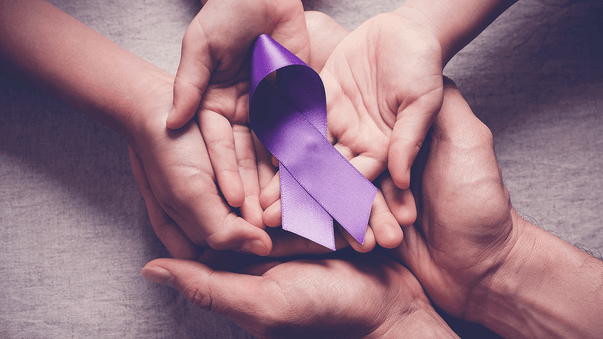FDA Approves Psilocybin Trial for Severe Depression

Usona Institute has received Breakthrough Therapy designation from the FDA and started a clinical trial to study the medical and safety effects of psilocybin in participants with depression (see below). Usona is a non‑profit medical research organization focused on treatments for depression. More information on the clinical trial can be found here.
Breakthrough Therapy designation is defined by the FDA as “a process designed to expedite the development and review of drugs that are intended to treat a serious condition and preliminary clinical evidence indicates that the drug may demonstrate substantial improvement over available therapy.”
What is truly groundbreaking is FDA’s rightful acknowledgement that MDD [major depressive disorder], not just the much smaller treatment-resistant depression population, represents an unmet medical need,” said Charles Raison. Raison is Director of Clinical and Translational Research at Usona. He added that the available data suggest that “psilocybin may offer a substantial clinical improvement over existing therapies.”
Psilocybin Against Major Depressive Disorder
Usona Institute has received Breakthrough Therapy designation from the US Food and Drug Administration (FDA) for psilocybin in the treatment of major depressive disorder (MDD).
The new status follows the recent launch of Usona’s Phase 2 clinical trial, PSIL201. The trial will include approximately 80 participants at seven study sites around the US. Two of the seven study sites are currently recruiting, with the others expected to be active by the first quarter of 2020.
Drug May Slow Aging of Skin
Scientists at Drexel University have found that rapamycin may also slow aging in human skin. Rapamycin is an FDA-approved drug, normally used to prevent organ rejection after transplant surgery.
In previous studies, the scientists used rapamycin in cell cultures, which reportedly improved cell function and slowed aging.
As reported in a new study published in GeroScience, 13 participants over age 40 applied rapamycin cream every 1-2 days to one hand and a placebo to the other hand for eight months. The results were encouraging.
CRISPR-Engineered Biosensors Detect Cancer
Researchers at University of Freiburg are using CRISPR gene editing to better diagnose diseases such as cancer.
A research paper published in Advanced Materials describes genetically engineered biosensors that recognize small fragments of RNA. The fragments indicate a specific type of cancer more rapidly and precisely than techniques available up to now.
The sensors have been successfully tested on blood samples taken from four children who had been diagnosed with brain tumors.
Liver Cancer Therapy Makes Normal Liver Cells Fight Cancer
Scientists at Flanders Institute for Biotechnology (VIB) have discovered that healthy liver tissue surrounding a tumor activates a defense mechanism that restrains tumor growth.
A study published in Science reports that the hyperactivation of this mechanism, above levels normally present in the liver, triggered the elimination of different types of liver tumors in mice.
This discovery identifies a novel strategy to fight against liver cancer. It could inspire new therapeutic approaches that mobilize normal cells to kill cancer cells.
Toward Therapy for Incurable Childhood Leukemia
Researchers at University of Zurich and the University Children's Hospital Zurich have found a way to stop acute lymphoblastic leukemia at a molecular level. They have also develop a targeted therapy.
Acute lymphoblastic leukemia is the most common form of cancer affecting children in Switzerland. And, unfortunately, it is often incurable.
The researchers administered a substance called A-485 to mice carrying human leukemia cells. The malignant cells died off, as reported in a research paper published in Cancer Cell.
According to the researchers, it could be possible to develop therapies able to stop the fundamental driving force behind this leukemia in humans.
Cannabis Reduces Headache and Migraine Severity
Washington State University psychologists have found that inhaled cannabis reduces self-reported headache severity by 47.3% and migraine severity by 49.6%.
Their study, published in The Journal of Pain, also found no evidence that cannabis caused “overuse headache,” a pitfall of more conventional treatments.
The psychologists did see patients using larger doses of cannabis over time, indicating that they may be developing a tolerance to the drug.
More Articles
Don't miss a beat! In our Pulse Newsletter, Thrivous curates the most important news on health science and human enhancement, so you can stay informed without wasting time on hype and trivia. It's part of the free Thrivous newsletter. Subscribe now to receive email about human enhancement, nootropics, and geroprotectors, as well as company news and deals.
Read more articles at Thrivous, the human enhancement company. You can browse recent articles in Thrivous Views. See other Pulse Newsletter articles. Or check out an article below.
-
New Cancer Treatment Achieves Spectacular Results
A new treatment developed by Tel Aviv University induced the destruction of pancreatic cancer cells in mice (see below), and ...
-
We May Need Higher Doses of B Vitamins
B vitamins play an extremely important role in brain health. That's emphasized in a 2016 review of the scientific literature ...


